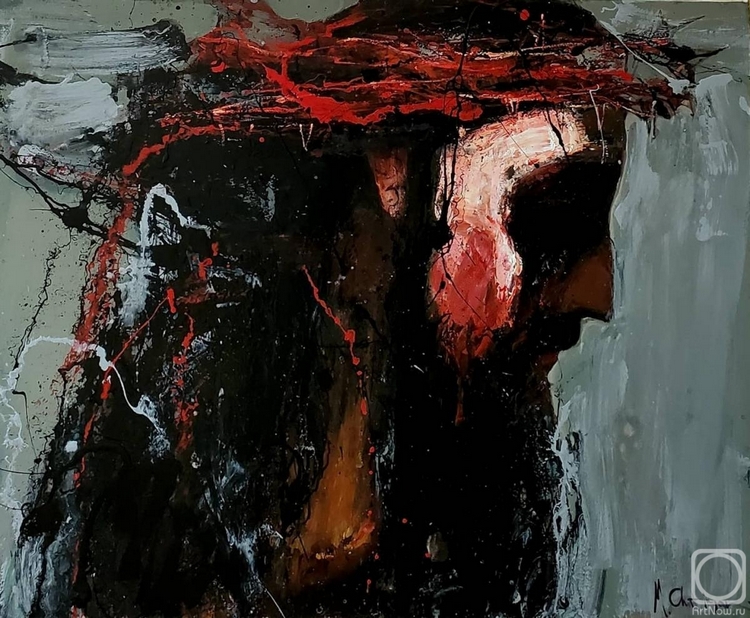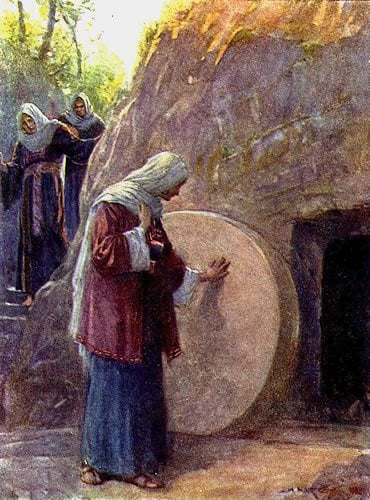Afterwords -- of first importance

"Now Jesus did many other signs in the presence of the disciples, which are not written in this book; but these are written so that you may believe that Jesus is the Christ, the Son of God, and that by believing you may have life in his name." (John 20:30-31)
"For I delivered to you as of first importance what I also received: that Christ died for our sins in accordance with the Scriptures, that he was buried, that he was raised on the third day in accordance with the Scriptures, and that he appeared to Cephas, then to the twelve." (1 Corinthians 15:3-5)
October 27, 2023
Dear friends,
According to the Apostle Paul, the matter of most importance is the gospel which we received, in which we stand, by which we are being saved, to which we hold fast, namely, the proclamation of the death, burial, and resurrection of our Jesus Christ our Lord. The Apostle Thomas, seeing the risen Lord Jesus (John 20:27-28), sees that the wounds of his risen Master, are yet visible and will be glorified forever. One central, crucial, life-giving, destiny-changing, turning-point event. And that includes both the history, and the meaning of that history. John writes that this gospel was written down in order to bring us to a living faith in Jesus and to have "life in his name" (20:31). This is the revelation of who Jesus is, and what he has done, which is given to us that we may receive eternal life, which is the knowledge of God (John 17:3).
I'm on a slow read through the Gospel of John and was impressed by the two chapters covering his arrest, trials, scourging, and crucifixion (ch 18-19), and then the two chapters which followed (ch 20-21), filled with surprise, joy, reconciliation, and hope. In two chapters we see the Jewish and Roman authorities, acting out their hatred in such mockery and violence against the Son of God. In the last two chapters we have scenes of reunion, calmness and joy ("peace to you"), and meals together, just like old times. Stories like Mary and the "gardener", and "that guy on the shore telling us where to cast our nets", certainly provoked laughter among them all. And what wonderment the disciples must have felt by the sea of Galilee when the Jesus (resurrected!) said, "Come have breakfast" (21:12).
The irony of it all. "Behold, the man!" spoken by Pilate in mockery, changes to the realization that... "He IS the Man!" On this statement (John 19:5), D. A. Carson comments,
"Once more Pilate steps out of the praetorium to address the Jews. He delivers his verdict, and then dramatically presents Jesus - a sorry sight, swollen, bruised, bleeding from those cruel and ridiculous thorns. Aware as he is that it is the people who must choose the man who will receive the governor's amnesty, he presents Jesus as a beaten, harmless and rather pathetic figure to make their choice of him as easy as possible. In his dramatic utterance Here is the man! (in Latin, Ecce homo!), Pilate is speaking with dripping irony: here is the man you find so dangerous and threatening: can you not see he is harmless and somewhat ridiculous? If the governor is thereby mocking Jesus, he is ridiculing the Jewish authorities with no less venom. But the Evangelist records the event with still deeper irony: here indeed is the Man, the Word made flesh (1:14). All the witnesses were too blind to see it at the time, but this Man was displaying his glory, the glory of the one and only Son, in the very disgrace, pain, weakness and brutalization that Pilate advanced as suitable evidence that he was a judicial irrelevance. (The Gospel According to John, Pillar Commentary, 1991).
So, I am seeing afresh that this is the thing of first importance. It's not just about having certainty that these amazing events took place. It's that (Luke 1:1-4), and it's more. It should lead us (you and me) to trust Jesus personally, and to keep trusting him. I was struck by Jesus' words to Peter after his restoration to fellowship and service. He said to Peter, "Follow me." (21:19) And then, after Peter began asking about God's future plan for another disciple (John), Jesus says, "...what is that to you? You follow me!" (21:22) The "you" is singular, and it's emphasized.
There are many things we do in the Christian life that involve other Christians. The church, fellowship, and Bible study groups are important for our spiritual life. Yet, this "You follow me" highlights the importance of our own individual walk with Christ. It reminded me of a snippet from The Horse and His Boy, by C. S. Lewis... “'Child,' said the Lion, 'I am telling you your story, not hers. No one is told any story but their own.'"
And what a story it is! Of all the "important" things in your life, is this gospel "of first importance" to you? Let me close with one of my favorite quotes from G. K. Chesterton on the resurrection:
“On the third day the friends of Christ coming at daybreak to the place found the grave empty and the stone rolled away. In varying ways they realised the new wonder; but even they hardly realised that the world had died in the night. What they were looking at was the first day of a new creation, with a new heaven and a new earth; and in a semblance of the gardener God walked again in the garden, in the cool not of the evening but the dawn.” (G. K. Chesterton, The Everlasting Man)
MISCELLANEOUS.
-- "Come and have breakfast", an Easter meditation from 2020.
-- "Did God really say that love’s virtue is in the eyes of the beholder or that it is inherently good no matter the object?" (Rosaria Butterfield)
-- "I believe in the Book of Revelation. The leaders of this world are eventually going to play God if they’re not already playing God, and eventually, a man will come that everybody will think is God. He’ll do things, and they’ll say, 'Well, only God can do those things. It must be him.’" (Bob Dylan)
FINAL QUOTE.
"Be this the eternal song Through all the ages long: May Jesus Christ be praised!"
(Edward Caswall, "When Morning Gilds the Sky," 1854)
That's it for this week!
Sandy
Image credit: photo above, "Behold the Man" (2021), a painting by Mher Chatinyan, an Armenian artist, courtesy ArtNow.ru gallery; painting below is "The Resurrection Morning" by J. H. Hartley. Unless otherwise indicated, all Scripture quotations are from The ESV Bible (The Holy Bible, English Standard Version), copyright 2001 by Crossway, a publishing ministry of Good News Publishers. Used by permission. All rights reserved.
